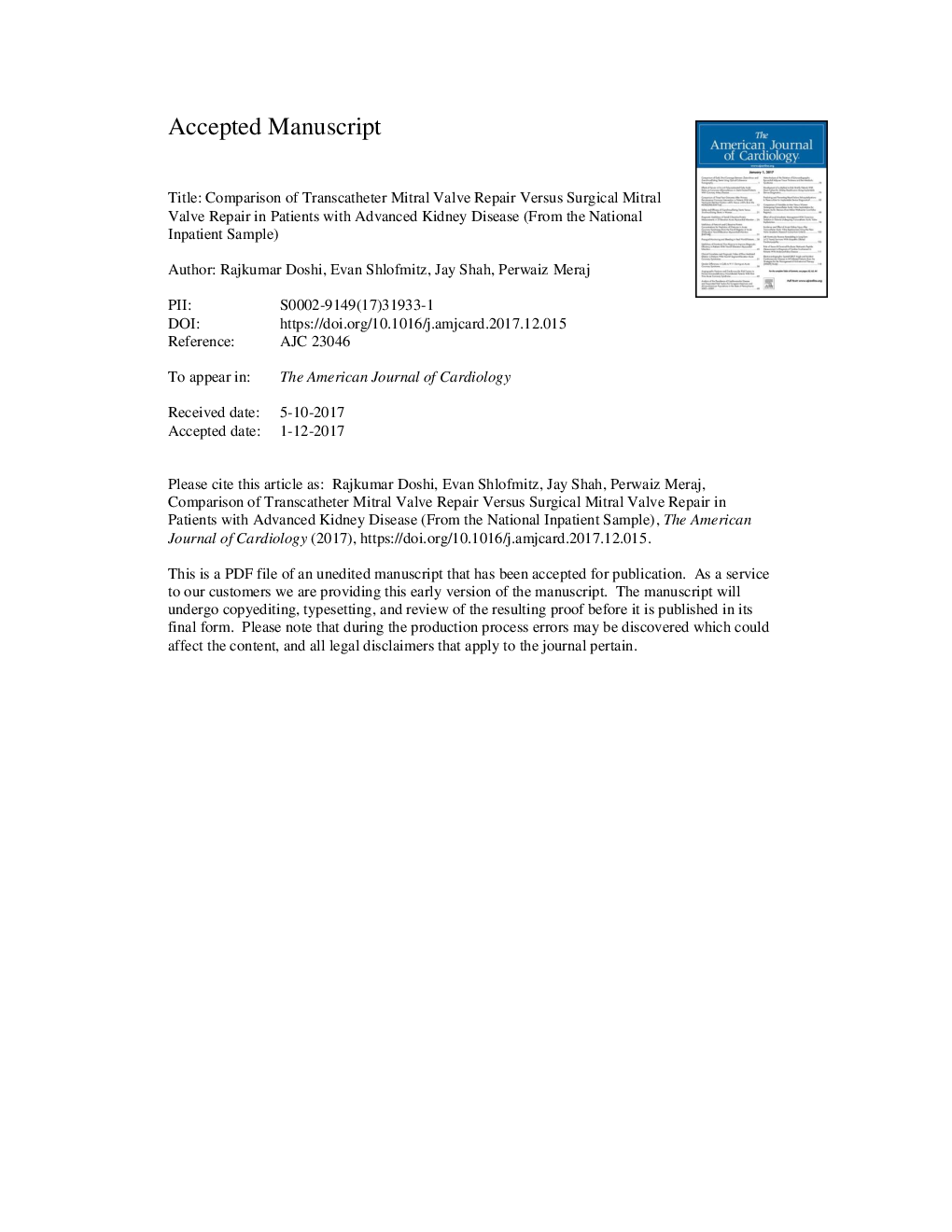| Article ID | Journal | Published Year | Pages | File Type |
|---|---|---|---|---|
| 8651477 | The American Journal of Cardiology | 2018 | 24 Pages |
Abstract
Transcatheter mitral valve repair (TMVR) is an emerging treatment modality that has been reserved for high-risk patients with multiple co-morbidities. We hypothesize that TMVR is a safe and effective procedure for patients with moderate to severe mitral regurgitation who are not surgical candidates. The National Inpatient Sample (2012 to 2014) using the International Classification of Diseases, 9th Revision, Clinical Modification procedure codes 35.97 for TMVR and 35.12 for surgical mitral valve repair (SMVR) were used. Patients with chronic kidney disease stage IV, Stage V, and end-stage renal disease (ESRD) were considered as patients with advanced kidney disease. A total of 2,123 patients were treated with SMVR and 74 patients were treated with TMVR. There were notably fewer patients treated with TMVR compared with patients treated with SMVR. The mean age was higher with the TMVR group (72.4 vs 61.7 years, pâ=â<0.001). After performing multivariate regression analysis, the primary outcome of in-hospital mortality (13.8% vs 1.3%, adjusted pâ=â0.003) and all secondary outcomes, excluding dialysis requirement, cardiogenic shock, and cardiac arrest, were significantly lower with the TMVR approach. The average length of stay was lower with TMVR compared with SMVR (22.8 vs 12.6 days, adjusted pâ=â<0.001), with reduced in-hospital costs ($98,165 vs $52,646, adjusted pâ=â<0.001). This large, national study suggests TMVR is associated with significantly lower in-patient morbidity and mortality, with significant cost savings in patients with advanced kidney disease compared with SMVR. Hence, TMVR could be a safe and effective alternative for patients with advanced kidney disease who are not surgical candidates.
Related Topics
Health Sciences
Medicine and Dentistry
Cardiology and Cardiovascular Medicine
Authors
Rajkumar MD, MPH, Evan DO, Jay MD, Perwaiz MD,
